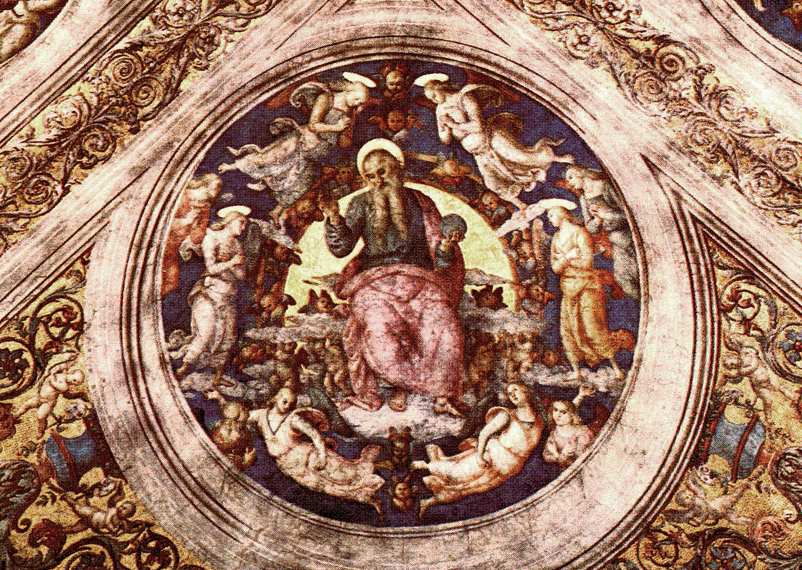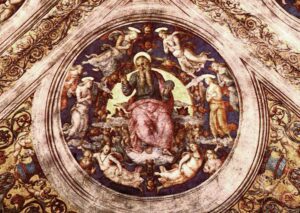
Ethical monotheism is the belief in one God who is the source of moral values and who commands humans to follow his will. The three major religions that share this belief are Judaism, Christianity, and Islam. These religions also affirm that God is all-powerful, all-knowing, perfectly good, and wholly benevolent. He created everything that exists other than himself, and he sustains and governs the universe with justice and mercy. He loves his creatures and wants them to love him back. He intervenes in human history and reveals his plans and purposes to his chosen people.
What is the Problem of Evil?
However, these beliefs raise a serious problem: why does evil exist? If God is omnipotent, omniscient, and omnibenevolent, how can he allow evil to occur in his creation? Evil can be understood as anything that causes harm, suffering, pain, or injustice to humans or other living beings. Evil can be natural, such as earthquakes, floods, diseases, or predators; or moral, such as murder, rape, theft, or oppression. Evil can also be personal, affecting individuals or groups; or impersonal, affecting the whole world or the cosmic order.
The problem of evil has been discussed by many thinkers from different perspectives and traditions. Some of the main questions that arise from the problem of evil are:
- What is the origin and nature of evil? Is evil a positive reality or a lack of good? Is evil inherent in creation or a result of free will? Is evil a test or a punishment from God?
- What is the purpose and meaning of evil? Does evil have a role in God’s plan or is it contrary to his will? Does evil serve any good ends or is it wholly negative? Does evil have any value or significance for human life?
- What is the response and solution to evil? How can humans cope with evil and overcome it? How can humans prevent or reduce evil in themselves and others? How can humans reconcile their faith in God with the reality of evil?
What is the Nature of Evil?
The problem of evil asks fundamental questions about the origin and nature of evil. Various theoretical frameworks offer divergent responses to this inquiry, contingent upon their presuppositions and implications regarding God, creation, and human freedom.
- Evil as an independent entity: Some approaches view evil as a force or substance that opposes or corrupts God’s good creation. This may imply that evil has an independent source or agent, such as Satan, demons, or fallen angels. This may also imply that evil has some power or influence over God’s will or plan, or that God has limited control or knowledge over his creation.
- Evil as a lack of good: Other approaches view evil as a lack of good, a privation or defect that diminishes God’s perfect creation. This may imply that evil has no real existence or essence, but only a negative relation to being or goodness. This may also imply that evil has no purpose or value, but only a parasitic or accidental role in God’s creation.
- Evil as inherent in creation: Some approaches view evil as inherent in creation, a necessary or inevitable consequence of God’s creative act. This may imply that evil is part of God’s design or intention for his creation, or that God has a reason or justification for allowing evil to exist. This may also imply that evil is a test or a punishment from God, either to challenge human faith and obedience, or to correct human sin and disobedience.
- Evil as a result of free will: Other approaches view evil as a result of free will, a contingent or avoidable outcome of human choice and action. This may imply that evil is not part of God’s design or intention for his creation, but a deviation or distortion from his original plan. This may also imply that evil is a responsibility or a risk of human freedom, either to express human love and creativity, or to abuse human power and autonomy.
What is the Purpose of Evil?
How evil came to be and what it consists of are some of the most basic issues in the problem of evil. Various views have different responses to these issues, depending on what they assume and imply about God, creation, and human freedom.
- Evil as part of God’s plan: Some approaches view evil as having a role in God’s plan for his creation. This may imply that God has a reason or a purpose for allowing evil to exist, or that evil serves some good ends that outweigh its negative effects. For example, some people believe that evil is a test or a trial from God, to challenge human faith and obedience, or to refine human character and virtue. Some people also believe that evil is a means or a stage in God’s plan, to fulfill his ultimate goal of salvation, redemption, or harmony. These are some of the implications of viewing evil as part of God’s plan.
- Evil as contrary to God’s will: Other approaches view evil as being contrary to God’s will for his creation. This may imply that God has no reason or purpose for allowing evil to exist, or that evil is wholly negative and destructive. For example, some people believe that evil is a result or a consequence of human sin and disobedience, which violates God’s law and order. Some people also believe that evil is an obstacle or an enemy in God’s plan, which hinders his goal of justice, mercy, or love. These are some of the implications of viewing evil as contrary to God’s will.
- Evil as meaningful for human life: Some approaches view evil as having value or significance for human life. This may imply that evil is not meaningless or absurd, but rather a challenge or an opportunity for human growth and development. For example, some people believe that evil is a source or a catalyst for human creativity and responsibility, which enables human expression and action. Some people also believe that evil is a condition or a context for human solidarity and service, which fosters human compassion and cooperation. These are some of the implications of viewing evil as meaningful for human life.
- Evil as meaningless for human life: Other approaches view evil as having no value or significance for human life. This may imply that evil is meaningless or absurd, and that it offers no challenge or opportunity for human growth and development. For example, some people believe that evil is a random or arbitrary occurrence, which defies human explanation and prediction. Some people also believe that evil is a hopeless or tragic situation, which denies human joy and hope. These are some of the implications of viewing evil as meaningless for human life.
How Do Ethical Monotheists Respond to the Problem of Evil?
There are various responses to the problem of evil from different perspectives. Some responses attempt to justify or explain God’s permission of evil, while others attempt to deny or redefine some of the attributes of God or evil. These responses are called theodicies or defenses. Some examples of these responses are:
- The free will defense: God gave humans free will to choose between good and evil, and he respects their choices. Evil is the result of human misuse of free will. God cannot prevent evil without violating human freedom.
- The soul-making defense: God allows evil to exist as a means of testing, refining, and developing human character and moral virtues. Evil is necessary for human growth and spiritual maturity.
- The greater good defense: God permits evil to exist as part of a larger plan that ultimately leads to a greater good that outweighs the evil. Evil is temporary and serves a higher purpose that humans may not fully comprehend.
- The best possible world defense: God created the best possible world that he could, given the logical constraints and moral values that he had to respect. Evil is inevitable in any finite and contingent world that includes free and fallible creatures.
- The skeptical theism defense: God’s ways are mysterious and incomprehensible to human reason. Humans are not in a position to judge God’s actions or inactions regarding evil. Evil may have reasons that only God knows.
What are the Objections and Counterarguments to the Problem of Evil?
These responses have been criticized and challenged by various objections and counterarguments from different philosophical perspectives. Some examples of these objections are:
- The logical problem of evil: The existence of evil is logically incompatible with the existence of a perfect God. There is no possible world where both coexist. Therefore, one of them must be false.
- The evidential problem of evil: The existence and amount of evil in the world provide strong evidence against the existence of a perfect God. There is no plausible justification or explanation for why God would allow so much gratuitous and horrendous evil.
- The moral problem of evil: The existence of a perfect God who permits evil undermines the moral responsibility and autonomy of humans. If God is ultimately in control of everything, then humans are not accountable for their actions or choices.
- The divine hiddenness problem: The existence of a perfect God who permits evil makes him morally culpable and blameworthy for his silence and inaction. If God loves his creatures, he should reveal himself and intervene to prevent or alleviate their suffering.
The problem of evil raises fundamental questions about the nature and attributes of God, the origin and purpose of evil, the meaning and value of human life, and the role and limits of human reason. It is not a problem that can be solved once and for all by any single answer or approach. Rather, it is one that requires ongoing exploration and engagement from different perspectives and disciplines.
References
- Ellens, J. Harold, ed. Explaining Evil. Praeger, 2011.
- Hick, John. Evil and the God of Love. Palgrave Macmillan, 2016.
- Meister, Chad and James K. Dew Jr., editors. God and the Problem of Evil: Five Views. InterVarsity Press, 2017.
- Peterson, Michael L. God and Evil: An Introduction to the Issues. Westview Press, 1998.
- Peterson, Michael L. The Problem of Evil: Selected Readings. 2nd ed., University of Notre Dame Press, 2016.
- van Inwagen, Peter. The Problem of Evil. OUP Oxford, 2008.











 Fallen Angels: A Mythological Exploration of the Origins of Evil
Fallen Angels: A Mythological Exploration of the Origins of Evil